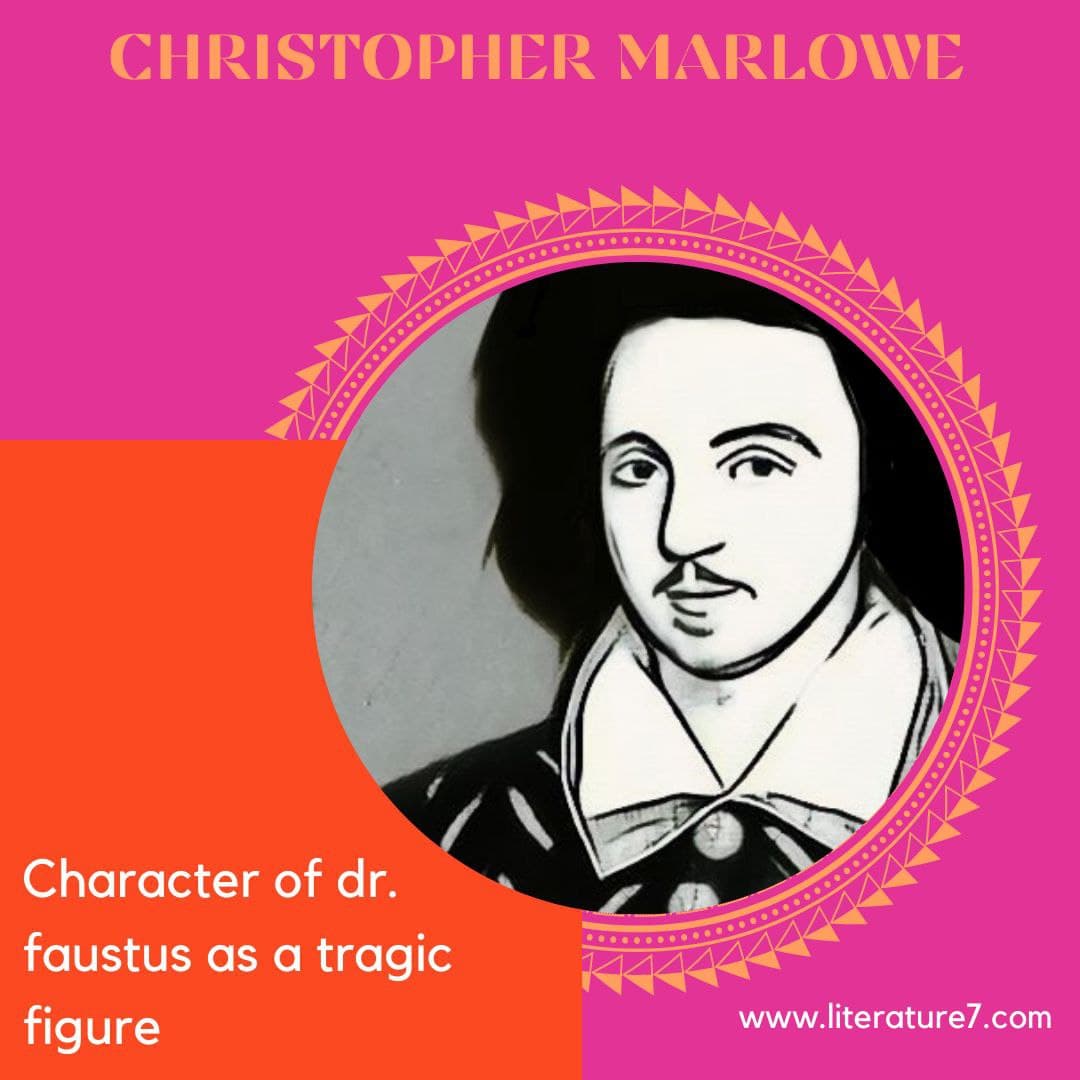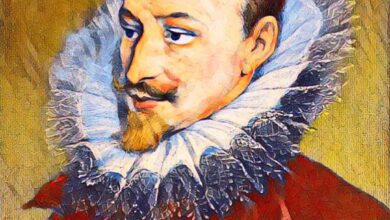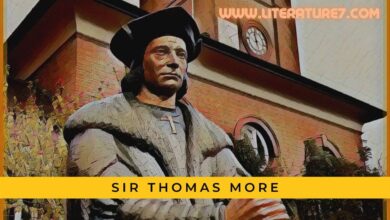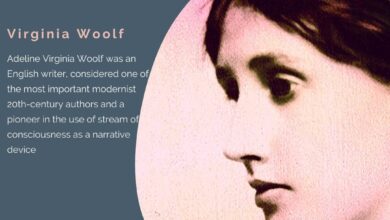Discuss the character of dr faustus as a tragic figure

Marlowe’s interpretation of the tragic hero is not entirely in keeping with its classical view. Chapter xiii of Aristotle’s poetics expresses the classical understanding of the tragic. According to Aristotle, the emotions of mercy and terror are the distinctive mark of tragic imitation. Therefore, the change of fortune to tragic events should not be the spectacle of a noble person who falls from wealth to adversity because this would only shock us and would never excite compassion or fear.
Similarly, in a tragedy, a bad man is not to be seen to move from adversity to success because such a thing is totally alien from the spirit of tragedy. This kind of circumstance does not satisfy the moral sense or excite compassion and fear. Again, tragedy does not exhibit the absolute villain’s downfall. Such a condition would surely satisfy the moral sense but would neither inspire compassion nor fear since a man like ourselves brings on compassion. Between these two extremes, there remains a character. He would not be wicked or extraordinarily virtuous. He should be a man of high order who, as a result of his frailty or error of judgment, goes from pleasure to misery.
TRAGIC HERO AND THE SPIRIT OF RENAISSANCE
The tragic heroes of Marlowe do not comply with all these requirements. They accept in part. For instance, Faustus belongs to a common German parent who goes to Wittenberg to study more frequently with the help of his family. He is not from a royal or noble family. But because of his scholarship, he’s perfect. Like Macbeth, he’s a hero with ambitions. It denounces God, blasphemes the trinity and the Christian doctrines, and sends his soul to the Devil for twenty-four years to acquire superhuman strength and to live a life of willingness. His destiny is resolved by signing the contract.
Marlowe is distinguished by instilling in his tragic hero the Renaissance spirit. Faustus continues to research necromancy with his need for wisdom. He answers the suggestions made by the Evil Angel to become the “Lord and Commander of the Earth.” He does his hardest to obtain a goddess and performs an act of sin. He sells his soul to gain infinite power to investigate the universe’s secrets.
Faustus, like some other great tragic heroes, is often affected by war. His dispute, like Hamlet, is also internal. After the internal dispute, the option of necromancy is Faustus. The Good and Bad Angel appear side by side are the embodiments of his good and evil impulses. His conventional heart is against his own damnation, but he doesn’t know all of the warnings and completes the scroll. As time goes on, he becomes more and more disillusioned about the gains he expected from magic, and he is starting to get stuck with a growing sense of loss and the wages of damnation.
Read also Allegory and symbolism in dr faustus
The basic thing about a tragic hero is his tragic defect that leads to his tragedy and doom. The tragic defect of Faustus’ character is his thirst for limitless strength and enjoyment. He submits himself to sensual appetites. As his growing impulses continue to bear him, the nightmare of his career becomes darker. He finally arrives at the impassable point and meets his fate.
The tragic hero is worthy of compassion and terror. The classical view shows that a tragic hero must inspire sympathy and fear in the public’s hearts. The fundamental appeal for life touches the audience’s heart. In this scene, pity and compassion for Faustus are aroused. Dr. Faustus can thus be seen as the tragic hero since he conforms to the essential characteristics of a tragic hero.





